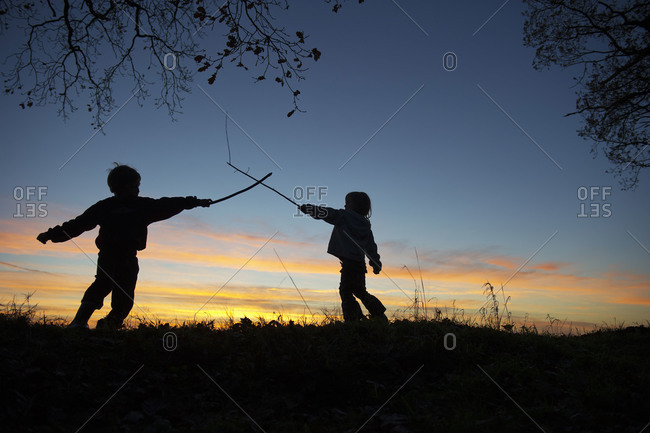Go ahead, make a list.
I'm serious. Try it.
Now, if you know a kid, ask them. Better yet, hand them a stick (or two or three). Better yet, go out somewhere a little wild and let them find their own sticks. Watch, listen and learn.

The stick is in the Toy Hall of Fame for a very good reason. Before the baseball bat (or in lieu of it all over the world right now) there was the humble stick. Humble? Not so fast. A stick is anything but humble.

A stick can:
build a house
build a boat
build a wall
be a leg
be a weapon
start a fire
fuel a fire
catch a fish
cook a fish
make music
tame a lion
trap a snake
tend a flock
be a ski
measure stuff
hypnotize a chicken
save a life








There's more-- so much more! Let one kid play with a stick and you'll start to find out how much more. Let a group of kids play with sticks, and you invite worlds of imagination and interaction.

"But, wait!" you say. "Sticks? Those sharp pointy things? No way! I'm not letting my kid play with a stick, especially with other kids. That's dangerous!"


Dangerous? And life itself isn't risky? Crossing the street, riding the bus, eating peanuts, meeting new people, petting a cat, falling in love, having a baby, getting in fights, swimming in the sea, climbing a mountain, riding a bike, climbing a tree-- we can get hurt any time, any where, any how. A little practise, a little managed risk builds skill. My Coast Guard grandpa had a habit of motoring his boat out into the ocean and throwing his kids over the side. This is how he taught them to "swim." I'm not an advocate of this approach, but I'm an advocate for exposure. Learning to swim is a very good thing-- many kids never learn and people drown unnecessarily because they never learned to manage in the water. How did the first folks learn how to use the 'ol atalatal if they couldn't pick up a stick? As the song goes, "Teach the children well." Help them build skills. Think about it, skills don't get built without risk. Kids can be coached on stick safety. The minimal effort and the risk are worth it (read my post Who Was Charles Whitman? if you want to understand the merits of real play).












I've adapted these ground rules over years of working with younger and older kids:
Stick Rules
You pick your stick (autonomy and choice)
Your stick can be as long as you are tall (if it's too long, the grown up can make it shorter)
Sticks don't touch--stick swords are great, they just don't touch (this rule can shift as you earn trust and prove your ability to handle a stick)
Sticks don't touch people or living things
Sticks can touch dead or dirty stuff
You must take a stick break if you have trouble remembering Stick Rules

You must take a stick break if you have trouble remembering Stick Rules

Sticks are tools for discovery, catalysts for fun and creativity. Before their were pens or swords there were sticks. The stick is our birthright.
Reclaim your birthright, and your right to play-- find a friend, young or old and figure out what you can do with a stick.




No comments:
Post a Comment
Please share your ideas with The Firefly